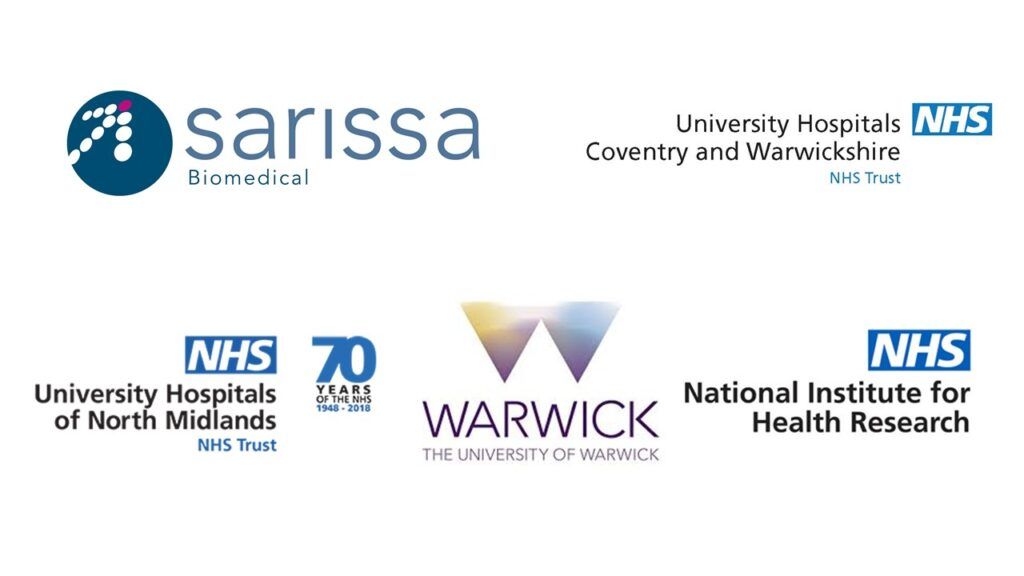A new test could offer a lifeline to stroke patients by dramatically reducing the amount of time it takes to recognise stroke symptoms.
The pioneering new test, called ‘SMARTChip’, has been developed by biosensor developer Sarissa Biomedical Ltd, set up by Professor Nick Dale of the University of Warwick. The development and testing of the new technology was funded by a NIHR i4i research grant and supported by a team of clinicians led by Professor Chris Imray (University Hospital Coventry), Professor Christine Roffe (Royal Stoke University Hospital), Professor Craig Smith (Salford Royal Hospital) and Dr Chris Price (Northumbria Healthcare) who evaluated its performance in detecting stroke and discriminating stroke from mimicking conditions.
SMARTChip has been specifically developed to enable a rapid diagnosis and treatment of stroke, from a 999 call right through to optimal treatment. This is one of the key priorities of the Stroke Association and the NHS RightCare pathway.
Professor Imray, who is named as an inventor on two of the patent applications associated with the research, said: “In the past there has often been a failure to recognise stroke symptoms, which can mean that urgent treatment for stroke is delayed, increasing damage to the brain.”
“SMARTChip has been developed to address the need for rapid diagnostic tests to inform clinical decision making in the early critical period following a stroke that can be readily combined with the current care pathway to give improved diagnosis.”
“We were able to identify and prove that on the onset of a stroke the brain releases a detectable quantity of purines into the blood.”
“SMARTChip is able to measure these purines in the blood and help diagnose the symptoms of a stroke faster, which means that our patients get the care that they need as quickly as possible. This diagnostic test for stroke leads to patients being diagnosed and treated quicker, reducing the severity of symptoms and saving the NHS time and money.”
Every year around 100,000 individuals have a stroke in England, and it is the third largest cause of death, after heart disease and cancer.
Earlier diagnosis of stroke can better inform clinicians, meaning that treatment can be administered earlier. This leads to fewer complications later, as every minute that a major stroke is left untreated; the brain loses 1.9 million neurons.
Professor Dale added: “We have already seen many positive outcomes from SMARTChip.”
“Following clinical trials, Sarissa have been able to develop a portable point of care finger prick blood test that could detect the surge of purines within minutes.”
“The finger prick blood test will be in a multicentre paramedic led clinical trial in early 2019 for evaluation of diagnostic accuracy, and a CE marked product is expected to be available after the first quarter of 2019. SMARTChip will be a valuable to aid for clinicians diagnosing a stroke, giving a reading in approximately 3-5 minutes.”
SMARTChip has won the MidTECH award for the “Best NHS-Developed Medical Technology Innovation” at the West Midlands Academic Health Science Network (WMAHSN) Awards 2018.

